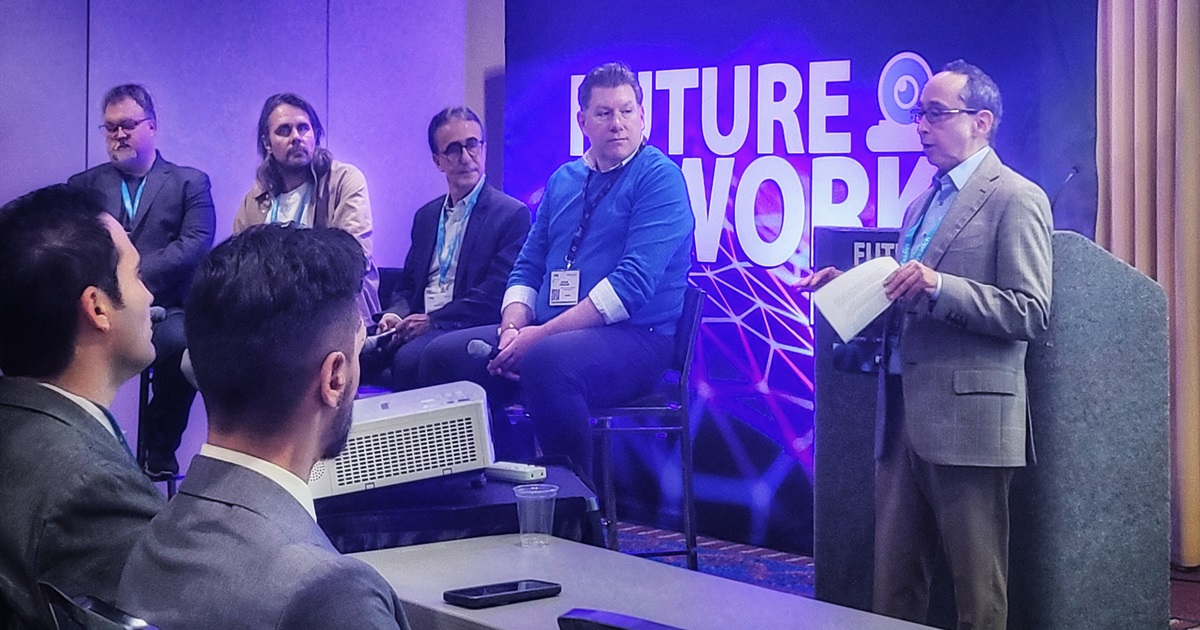
The "office as usual" is no more, driven by pre-pandemic shifts and accelerated by COVID-19. Hybrid work reigns with the likes of UCaaS. UCaaS offers location-agnostic communication across devices and networks.
While video meetings help bridge physical gaps, UCaaS fosters true collaboration, minimizing hurdles when in-person interaction is limited. But effective collaboration goes beyond video calls.
Jon Arnold, principal, J Arnold and Associates, led a panel discussion at Future of Work Expo 2024 that featured Todd Knapp, hybrid/modern work evangelist, Envision; Luiz Domingos, CTO, Mitel; Steve Forcum, director of program management, SIPPIO; and Tonny Siemons, business development director, Enreach.
The panel discussed why the shift to remote work was hard and what businesses need to invest in to make hybrid work efficient.
Before getting into collaboration from anywhere, Arnold asked the panel why hybrid work is so difficult to manage and enable us to manage.
The unanimous answer across the panel was the transition.
“I am not gonna sit here and pay for an office that is empty,” said Forcum.
“One of the big problems was management,” said Knapp. “We did not train managers on how to evaluate teams when not in person. It makes those managers ineffective.”
Siemons followed those two responses by mentioning that the metaverse can be a key.
“Metaverse can solve a lot of problems we are having with hybrid work,” said Siemons. “It’s not a good experience to have four people in a room, two online and everyone is looking at a screen.”
Staying with Siemons, being from Europe, Arnold wanted to get his perspective on the differences seen in the U.S. and in the EU in hybrid work since the pandemic.
“People in the U.S. had offices at home. In the EU, a physical office space was more common. The home office is a bit new for the EU,” said Siemons. “But overall today, it is pretty much the same.”
Domingos, who has teams in Germany also provided insight on the differences
“Many of my teams in Germany were excited with remote work because it was eco-friendly,” said Domingos. “But they were not as prepared as the U.S., but they welcomed it.”
One reason for the EU not being as prepared is because the homes in the EU are not built for home offices. People working from home had to set up a station in the laundry room or the kitchen. Or they had to find a tight corner.
At that point, Arnold changed directions with the conversation. How has UC been evolving to keep up?
“AI. The advent of AI is going to help with the overwhelming feeling,” said Forcum. Copilot, for example, is a gamechanger.”
Domingos argued that point by saying AI is not the only solution.
“We need to figure out the way to deliver a very good experience,” said Domingos. “Investment in metaverse and AR/VR will be important.”
Edited by
Greg Tavarez